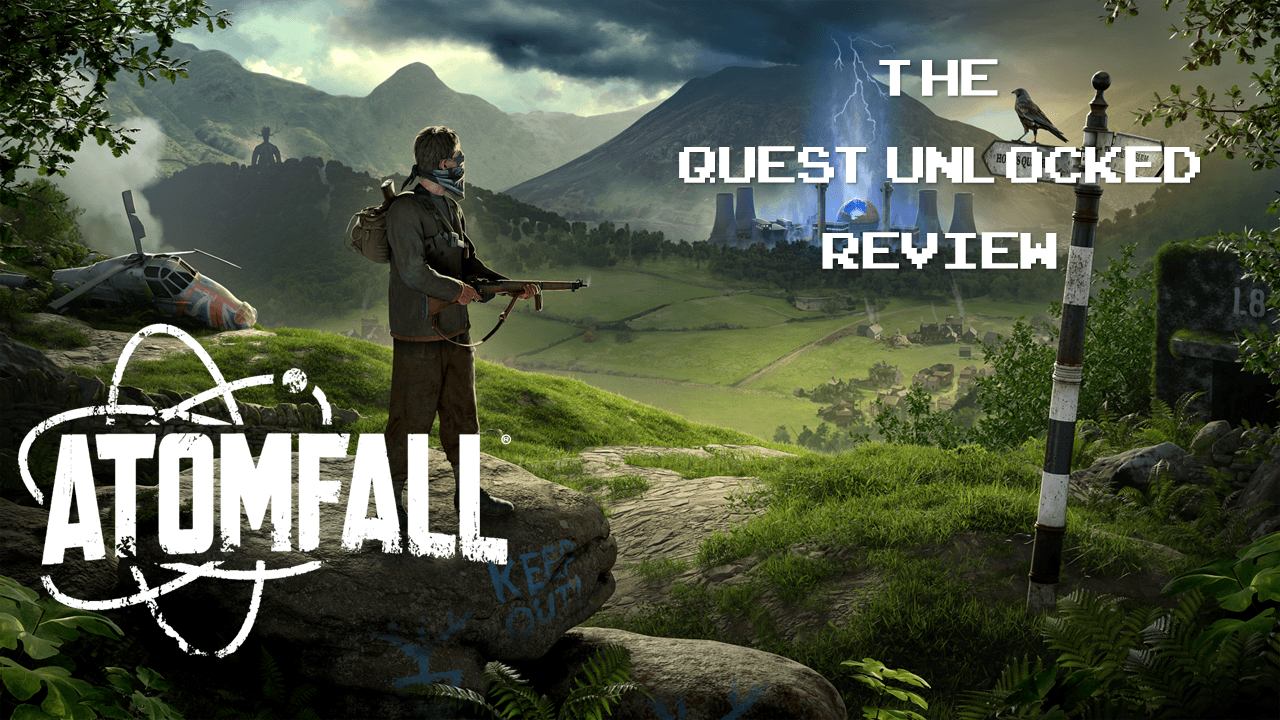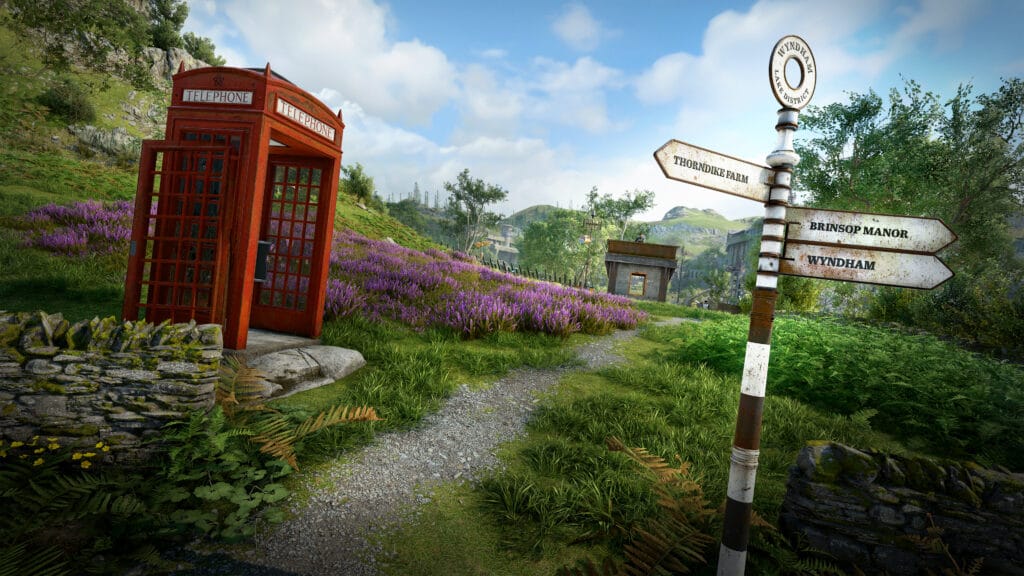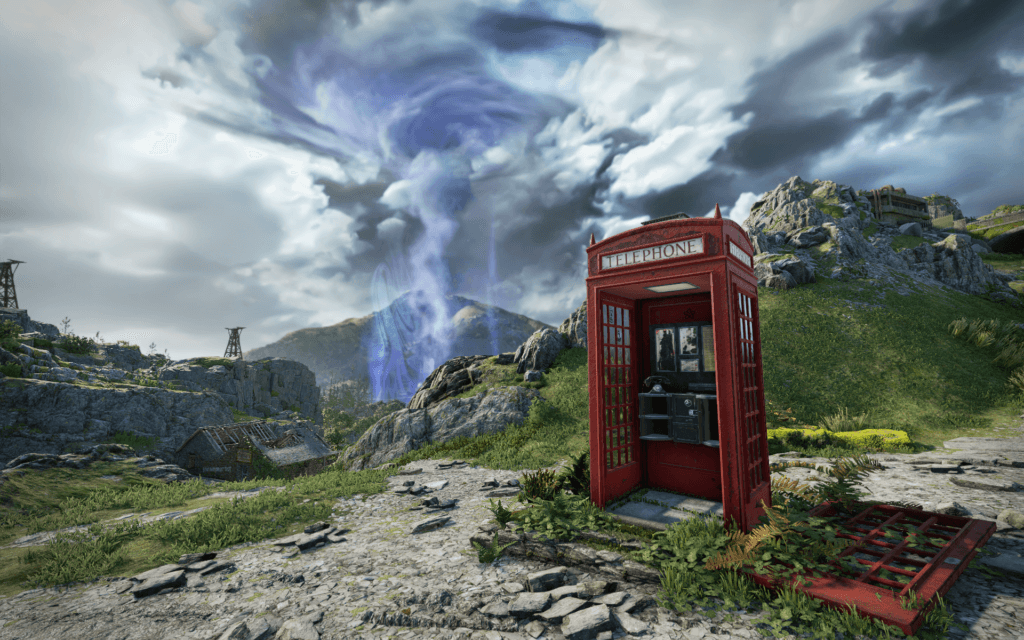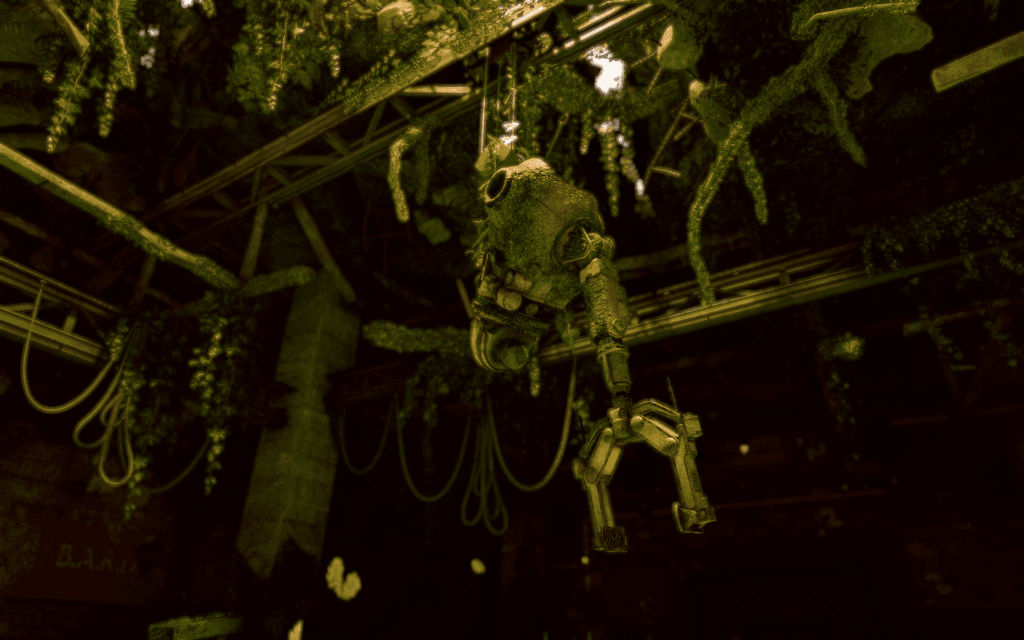
A Journey into the Unknown
There are moments in gaming where expectation and reality collide, leaving players either pleasantly surprised or utterly disappointed. Atomfall, developed by Rebellion Developments, is one such game that defies easy categorization. Initially dismissed by some as a “British Fallout wannabe” or an experiment in survival mechanics that falls flat, it has slowly revealed itself to be one of the most intricate and rewarding gaming experiences in recent years.

For days, I immersed myself in Atomfall, forsaking sleep, postponing other obligations, and diving deep into the game’s enigmatic world. It became an obsession—a slow-burning revelation that unspooled its brilliance in ways I never expected. This is not just another post-apocalyptic survival RPG. This is a game that demands patience, rewards curiosity, and ultimately delivers an experience unlike any other.
A Game That Refused to Cater
My first few hours with Atomfall were frustrating. The game doesn’t hold your hand. There are no glowing quest markers leading you to your next objective, no clear narrative spoon-feeding exposition. Instead, it drops you into a quarantined stretch of Northern England, five years after a nuclear disaster, and tells you to find your way.
At first, I was irritated. The game’s interface felt sparse, its objectives unclear. Unlike the Fallout series, which delights in bombastic retro-futurism and over-the-top caricatures, Atomfall presents a grim yet eerily beautiful reality. There’s no wasteland strewn with wreckage; instead, it’s the English countryside, deceptively lush yet hiding horrors beneath its pastoral veneer.

The combat felt sluggish at first. Gunplay lacked the weight of something like Metro Exodus, and melee combat seemed rudimentary. The survival mechanics—tracking heart rate, managing fatigue, and engaging with a barter-based economy—felt unnecessarily restrictive. The “Leads” system, which replaces traditional quest tracking with organic information-gathering, seemed cumbersome.
I was ready to quit. And then, something changed.
A Rough Welcome to the Wasteland
Atomfall doesn’t waste time easing players into its world. You wake up in a bunker with no memory, a few cryptic clues, and the freedom to wander a quarantined expanse of the English countryside at your own pace. The game does little to direct you—there are no flashing waypoints or omniscient quest logs. Instead, it employs the “Leads” system, which requires you to piece together clues from conversations, documents, and environmental storytelling.

At first, this design choice felt refreshing, reminiscent of Outer Wilds and S.T.A.L.K.E.R. in its commitment to discovery-driven progression. But as I delved deeper, the cracks started to show. The Leads system, while immersive in concept, often left me aimlessly wandering in search of the next breadcrumb. Some clues were cleverly placed, rewarding careful observation, but others felt frustratingly obtuse. Without a well-structured journal or intuitive way to track objectives, I spent too much time questioning if I had missed something vital.
Rich in Concept, Inconsistent in Execution
One of Atomfall’s greatest strengths is its world-building. Set five years after the real-world Windscale nuclear disaster of 1957, the game reimagines a version of Northern England where government secrets, cults, and radiation-warped horrors lurk beneath the surface. It taps into British folk horror influences, drawing from The Wicker Man and Quatermass to craft an unsettling atmosphere.
The story unfolds at its own pace, rewarding players who take the time to explore. Conversations with survivors, notes left behind in abandoned homes, and strange transmissions from red telephone boxes paint a picture of a world teetering on the edge of madness. There are no clear “good guys” or “bad guys”—only desperate people trying to survive.
Yet, while the narrative setup is compelling, the execution falters. Many characters feel underdeveloped, their dialogue often too brief to leave a lasting impression. The game hints at grand conspiracies and shocking revelations, but the payoff rarely matches the intrigue. Atomfall is at its best when it lets the world tell its story, but when it tries to lean on more traditional narrative beats, it feels rushed and underwritten.
A Mixed Bag of Innovation and Frustration
Mechanically, Atomfall makes several bold choices, some of which pay off while others fall flat.
The exploration is undeniably its highlight. The game’s five interconnected zones are packed with hidden secrets, making each venture into the unknown feel rewarding. Whether stumbling upon an old military bunker, a church repurposed by cultists, or an eerie, abandoned farmstead, there’s a constant sense of discovery. The lack of fast travel forces players to engage with the environment, which adds to the immersion—though backtracking through previously explored areas can become tedious.
Where Atomfall stumbles is in its combat and survival mechanics.
Combat is a clunky affair. Melee weapons feel sluggish, and ranged combat lacks impact. Guns are rare and often inaccurate, forcing players to rely on a mix of stealth and scavenged weaponry. The emphasis on managing heart rate and fatigue adds an interesting survival element, but it rarely feels like more than a minor inconvenience. Enemy AI is also inconsistent—sometimes oblivious to your presence, other times possessing superhuman accuracy.
The survival aspects are similarly undercooked. While crafting is present, it feels tacked on rather than essential. Resource management never reaches the tension of games like The Long Dark or Resident Evil, and the barter-based economy, while thematically interesting, ultimately lacks depth.
Atmospheric but Technically Uneven
One thing Atomfall absolutely nails is its aesthetic. The English countryside, with its rolling hills, decaying villages, and overgrown farmlands, is a breath of fresh air compared to the usual scorched-earth post-apocalypses. The lighting is particularly striking, with fog-drenched fields and golden sunsets creating an eerily beautiful backdrop.

The soundtrack, an unsettling blend of eerie orchestration and 1950s British radio broadcasts, enhances the game’s folk horror vibe. The ambient sounds—howling wind, distant Geiger counter clicks, the occasional scream—create an oppressive atmosphere that kept me on edge.
However, technically, the game struggles. Character animations can be stiff, lip-syncing is often out of sync, and texture pop-in is frequent. While these issues don’t ruin the experience, they do break immersion at times, reminding players that they are in a game rather than a living world.
Performance on PC
One of Atomfall’s strengths is its relatively smooth performance on PC, though it is not without its hiccups. The game generally runs well, with stable frame rates on mid-to-high-end systems, and offers a range of graphical settings to optimize performance. However, occasional stuttering and minor texture pop-in can be distracting, particularly in larger open areas. The game is well-optimized for SSDs, significantly reducing load times.
However, bugs and AI pathfinding issues persist, sometimes leading to awkward enemy behavior or immersion-breaking glitches. While Atomfall doesn’t suffer from game-breaking problems, it would benefit from a few post-launch patches to iron out inconsistencies.
Replayability and Longevity: A Short but Varied Experience
Unlike sprawling open-world RPGs, Atomfall is a more contained experience. A single playthrough takes roughly 15-25 hours, depending on how much time you spend exploring. The multiple endings and faction choices provide some replayability, but the core gameplay loop remains the same. Without a compelling combat system or deep RPG mechanics, revisiting the game feels more like replaying a mystery novel than a dynamic, evolving experience.
Final Verdict:
Atomfall is a game that swings for the fences, and while it doesn’t always hit, it’s impossible not to respect its ambition. Its world-building, exploration, and immersive storytelling elements make it a fascinating journey for those willing to embrace its quirks. But its uneven mechanics, frustrating combat, and narrative inconsistencies hold it back from true greatness.
For players who love atmospheric, open-ended storytelling and don’t mind a bit of jank, Atomfall is absolutely worth experiencing. But for those who prefer tight, polished mechanics and clear-cut objectives, it may be a tougher sell.
A unique and atmospheric survival RPG that excels in exploration and world-building but falters in execution. Atomfall is a game worth playing, but only if you’re willing to overlook its flaws.
Atomfall releases on March 27, 2025, for PC, PS4/PS5, Xbox One, and Xbox Series X/S, with its optional Deluxe Edition granting three days of early access. The Quest Unlocked was provided a PC code for this review.




